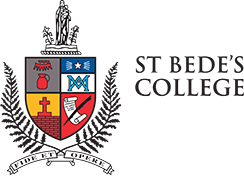Tips for Stepping Out
Leaving school and heading out into the world of work and study is a huge step, you need to be prepared.
Here are some helpful tips:
- Building a C.V
- Job Hunting and Interviews
- Work Experience and Expectations
- School Leavers Tool Kit
- Student Loans
- Kiwi Saver
Building a C.V.
How do you set up a C.V?
C.V’s have a systematic flow to their structure. Remember to keep it uncluttered and formal in its setting. Layout is important, as you want to make sure the employer can read it easily and find the information they want.
Most CV’s contain the following…
- Your Name
- Personal details (address, email)
- Personal statement (2-3 paragraphs about yourself)
- Technical skills – (what skills do you have, (e.g.computer, team building)
- Personal qualities – (e.g. honest, reliable)
- Work experience – (checkout at New World, Rugby Umpire)
- Education and training – (5 years education at St Bede’s College)
- Achievements – ( Junior Canterbury Cricket Team)
- Hobbies and interests – (skiing, swimming, tramping, go kart racing)
- Referees – ( Full details of 2 people you know well)
- Pictures – are optional –
The CareersNZ site has some great information on building a C.V.

Cover Letter
A cover letter is usually no more than a one-page letter or short email that accompanies your C.V when you apply for a job. It tells the reader a bit about you and why you want to apply for the particular position. It is the first point of contact with a prospective employer, and if it is awful, chances are that’s all that is going to be read.
A well-written cover letter can really boost your chances of landing an interview. You should always include a cover letter or an e-mail that mentions the advertisement (or how you learned about the job, eg their website) and the stated requirements of the job.
A cover letter is a formal document and is your opportunity to demonstrate your written skills. Where possible address it to a person, but if one is not listed, use ‘Dear Sir or Madam’, not ‘Hi there’. You could phone the company and find out who is the correct person to address it to.
There should be no spelling or grammatical mistakes and it should not be longer than one page. Some employers won’t read any further than your covering letter if it is too generic.
Here’s more on how to write a covering letter
- Write your cover letter in the first person
- Start with a brief introduction about yourself and state the purpose for writing. Mention the job you’re applying for and your interest in it.
- Give a snapshot of relevant skills, qualifications and experience that relate to the job description.
- If you’ve claimed a particular skill, give brief examples of these.
- Do some research on the companies you apply to so that you understand what business they are in and what role they play.
- State that your resume is attached, and then finish with a call-to-action, such as requesting an interview or a meeting.
- Use clear direct language, avoiding long sentences or fancy words.
- Tailor the letter to the job and company (don’t recycle).
- Keep it under 250 words and make sure it fits onto one page.
CareersNZ – Covering Letter Link
NZ Herald Article on Writing Covering Letters
Hints for Finding Work
1. Be clear on what you want
Take the time to reflect on your strengths and weaknesses and the type of work you enjoy doing. The better you know yourself, the more likely you’ll find a job that provides you with greater satisfaction.
2. Research the people you want to work for
Investigate your future employer’s company. It will help you get a feel for their culture and figure out what questions they commonly ask in interviews.
3. Tailor your resume to each job
Your C.V is one of the most critical tools of a job search. Have an achievement-oriented C.V that includes quantifiable achievements that are relevant to the job you’re applying for.
Make yourself an obvious fit. Study the words and phrases that are used in the job description? Make sure you include them in your C.V (provided you have that experience, of course). Tailor your resume to each job – the recruiter should know within a few seconds of looking at your resume that you have the skills they are looking for.
4. Create your online career brand
Linkedln & Facebook
Check your Facebook and Instagram account and if there is something on there, you would not show your grandmother, delete it. Future employers, check your social media. Make sure your account reflects well on you. You could also start thinking about building your brand and showcasing your expertise and passion online where employers searching the web can find it.
5. Get organized
When you start getting interviews, come home and make a list of questions they ask and what their expectations are, so you are better prepared for the next one, if you don’t get the original job.
6. Build, cultivate, and utilize your network of contacts
Make contact with your friends parents, your parents friends, grandparents friends, neighbours and teachers and start networking. This is one of the most valuable skills you can attain when it comes to finding employment.
People who know you will help you uncover job leads, this results in more job opportunities. Network – in person and online.
Don’t be afraid to reach out to people, if you know someone working at a company that interests you, ask for a referral. Hiring managers would prefer to interview people who came recommended before sorting through the resumes arriving via a career website.
7. Don’t limit yourself to online applications
If you rely only on submitting online applications, you could be looking for a job for a very long time. By the time you apply, the company might be in the final interview stage, or the job might have even been filled. Contact companies that interest you directly – you might get in contact with an internal recruiter or schedule informational interviews with people who work in those companies. Ideally, you want to be known to the people who might influence you getting your foot in the door.
8. Aim to complete a few job-related goals daily
It takes a great deal of time and effort to find a job. In a long job search, it’s easy to get discouraged and distracted, but by focusing on achieving daily goals you can motivate yourself while also building a foundation for success.
9. Be kind to yourself
Looking for a job can be stressful. So, take some time to exercise, watch a movie or whatever it is that helps you unwind. Create a good support network – having people to brainstorm with or vent your frustrations to will help the process be less painful.
10. Develop examples and stories that showcase your skills
This is one of the main tips for finding a new job. People remember stories, so your goal should be developing a set of interview stories you can use in networking meetings or job interviews that clearly demonstrate your skills, achievements, and passion for your work. Be memorable! Using stories may also help you feel more comfortable talking about yourself.
11. Prepare for all job interviews
Before you get called for your first interview, develop responses for common interview questions, and then practice them — ideally using the mock-interviewing technique with a friend, network contact or a parent. Researching the company/organisation and the role itself will help you answer questions and show you’re keen for the job. The more prepared you are for the interview, the more comfortable you’ll be and the more likely you’ll succeed.
12. Write thank-you notes after interviews to all interviewers
A quick note (by email is fine) of thanks that emphasizes your interest and fit with the job and employer will not get you the job offer, but it will help make you stand out from the majority of jobseekers who do not bother with this simple act of courtesy.
13. Continue following up with hiring managers
Once the interview is complete, you could send a thank-you note. Follow up with the hiring manager regularly, showing interest and enthusiasm for the job. The key is to keep the contact while not making yourself sound needy.
Skills Demand
Employability skills are the skills, qualities and attitudes that employers deem essential for their workplace:
1. Positive attitude – being calm and cheerful when things go wrong.
2. Communication – listening and stating information clearly when you speak or write.
3. Teamwork – helping out when it gets busy at work.
4. Self-management – getting to work on time every day.
5. Willingness to learn – the desire to learn new things to improve your skills.
6. Thinking skills – ability to solve problems and making decisions on your feet
7. Resilience – staying calm under the pressure of angry customers or difficult situations
Use the Skill Matcher to explore possible careers and check out where the jobs are.
Work Experience
Work experience provides you with:
- The opportunity to relate school subjects with a workplace
- insight into the diversity of employment in the workplace
- the demands and expectations of the working world
- Insight to make informed career decisions by assessing aptitudes, interests and exploring potential careers
- Increased maturity, confidence and self reliance
- a link between school and local community
- appropriate knowledge, skills and attitudes concerning both paid and unpaid work
How do you get this work experience?
If you are interested in looking more seriously at a Career you might like to pursue, then try and approach someone you know, who is in that career. There is nothing stopping you from going out and door knocking or asking people in your network or your parents network for work experience.
If you don’t know anyone, then come over and speak to us in the Careers office and we will see what we can set up for you.
Work experience may not be the most exciting role, with boring, administrative tasks, but with health and safety rules, sometimes these experiences are all we can offer. The work is also unpaid. However, the experience will form a crucial part of your C.V and hold you in good stead for when you apply for an internship or graduate role in the future.
Volunteering
You can volunteer your services. This could include anything from handing out flyers at a business workshop, to helping in a real estate office after school, or delivery parcels after school. This assists you in setting up your network.
Alternatively, you could volunteer at somewhere like the Salvation Army or the local football club, which might not be strictly industry related but will still be a positive experience to include on C.V..
School Roles
There are a number of roles in any school that can also provide you with work experience. You could volunteer to take a sports team, assist in catering for a school event, serve at the school canteen, run a club, develop some software to assist in lesson delivery.
Check out the Careers NZ Work Experience Link
Work Expectations
Turning up to work, what are the expectations?
(from Business Insider Magazine)
- Prepare and ask questions – you should spend much of your first day listening, but you should also ask questions. “Generally, you’re trying to demonstrate your curiosity and desire to learn. “Have a list of questions handy for managers you think you might meet.
- Prepare an elevator pitch. Get ready to give a 30-second explainer of who you are and where you were before, as many new colleagues will likely ask about your previous place of employment. Also be prepared to describe what you’ll be doing in this new position.
- Show up early. Get there at least 15 minutes early. “If you haven’t done the commute before, practice it a couple of times during rush hour a week before so that you’re at least somewhat prepared for the unknown.”
- Figure out the social landscape. Get along with your co-workers,
- Relax. Relax on your first day so that you can optimize your productivity. “Make sure you’re well rested and prepared.
- Smile. “It may have taken a while to reach this point, after searching, interviewing, and landing the job, so don’t forget to be happy and enjoy the moment,”
- Look presentable and play the part. The way we dress and smell can turn people off as it sends the wrong message. Ideally, you want people to like you, so dress to blend in. Take time with your personal grooming, deodorant, teeth cleaning, hair and fingernails.
- Don’t be shy. Say “Hi” and introduce yourself to everyone you can.
- Talk to as many people as possible. One of the most invaluable insights you can get in the beginning is how the department operates from the perspective of your peers.
- Befriend at least one colleague. Go a step further and try to make a friend on Day 1. Try and connect with a fellow team member on your first day. Beginning a new job can be stressful and finding a friend can accelerate your ability to get up to speed faster in a new job.
- Don’t try too hard. You don’t have to wow your new colleagues, you got the job, you’ll impress naturally — and more so once you understand the ropes.
- Don’t turn down lunch. If you’re offered to go have lunch with your new boss and coworkers, go. It’s important to mingle with your new team. Save the packed lunch for another day.
- Listen and observe. Do this for the first few days. It’s not the time to have a strong opinion. Be friendly, meet people, smile, and listen.”
- Project high energy. Your attitude and work ethic are most visible at the beginning.
- Learn the professional rules. Know your job description of your responsibilities. This is what you should do to be successful at your job.
- Put your cell phone on silent. You need to be 100% present at work, especially on the first day.
- Show interest in everyone, and the company. Make an effort to find out about your work mates and their role. It’s not just flattering, it will help you do your job better.
- Pay attention to your body language. Body language makes up the majority of your communication. Know what you’re communicating to better understand how others perceive you.
Practical skills for life
Advice and resources for finding your way after leaving school.
Student Loans
Check out Study Link to help you make informed choices about your student finance, how to apply for it and manage it online.
Kiwi Saver
KiwiSaver is a voluntary savings scheme set up by the government to help New Zealanders to save for their retirement. You can choose to contribute 3%, 4%, 6%, 8% or 10% of your gross (before tax) wage or salary to our KiwiSaver account.
Retirement might seem like a long way away, when you start your first job, but time goes quickly. Kiwi Saver can also help you purchase your first home.
Set it up in time for your first pay. If you never receive the money in your pay, you will never miss it – something to think about!











